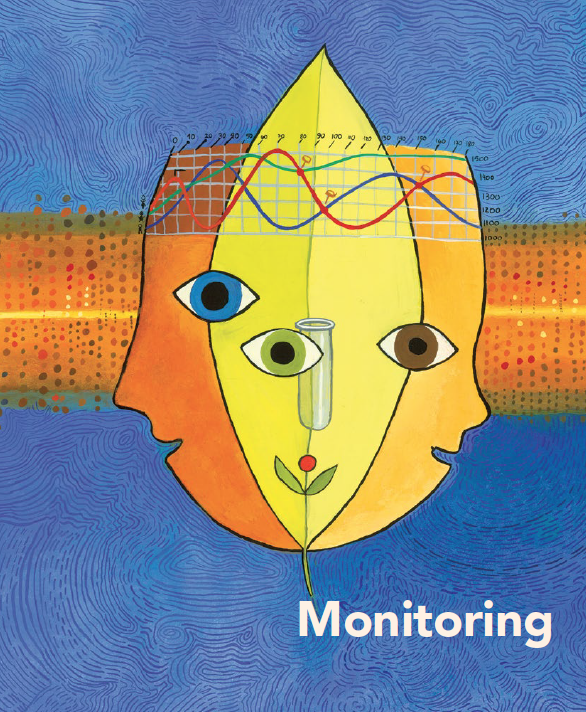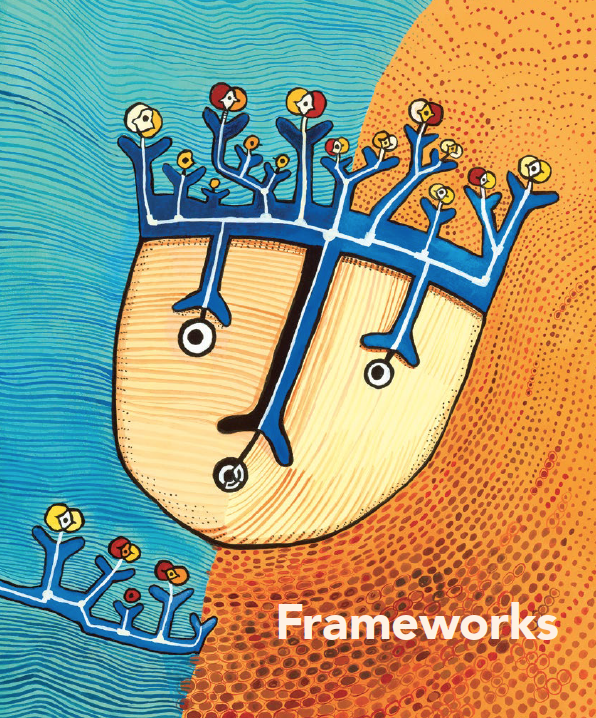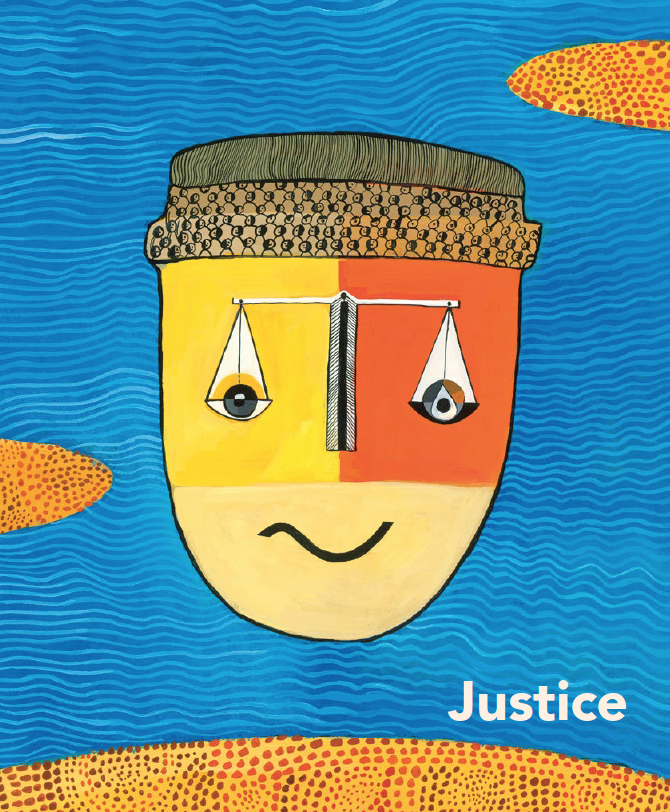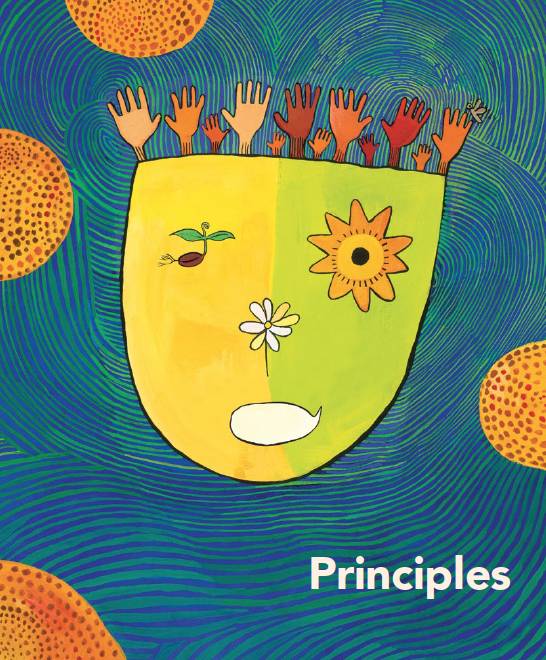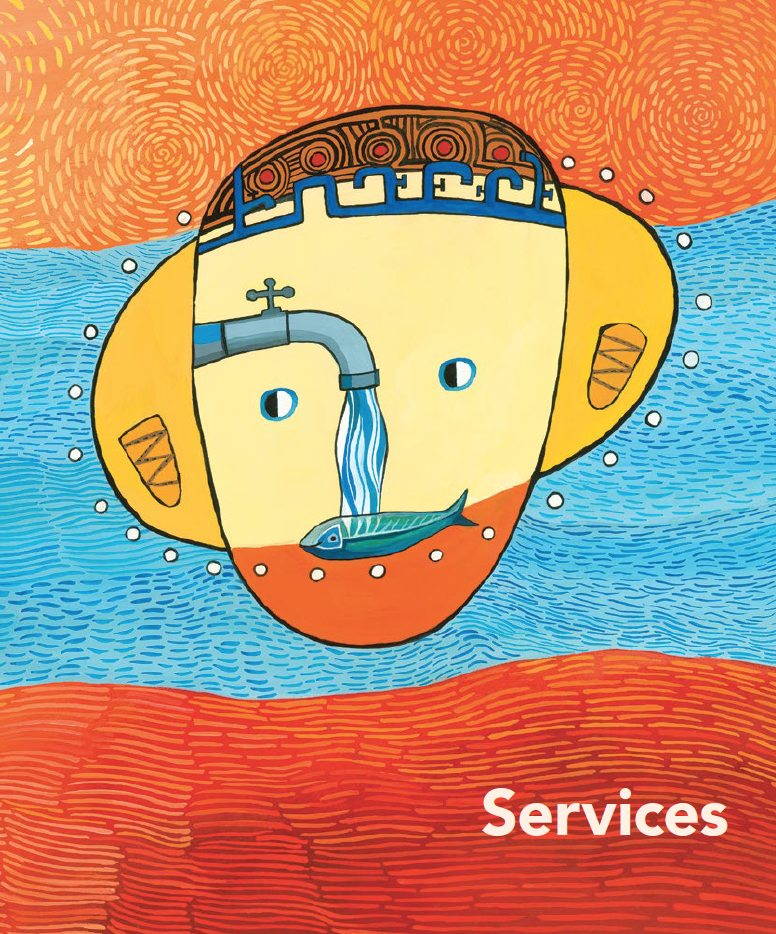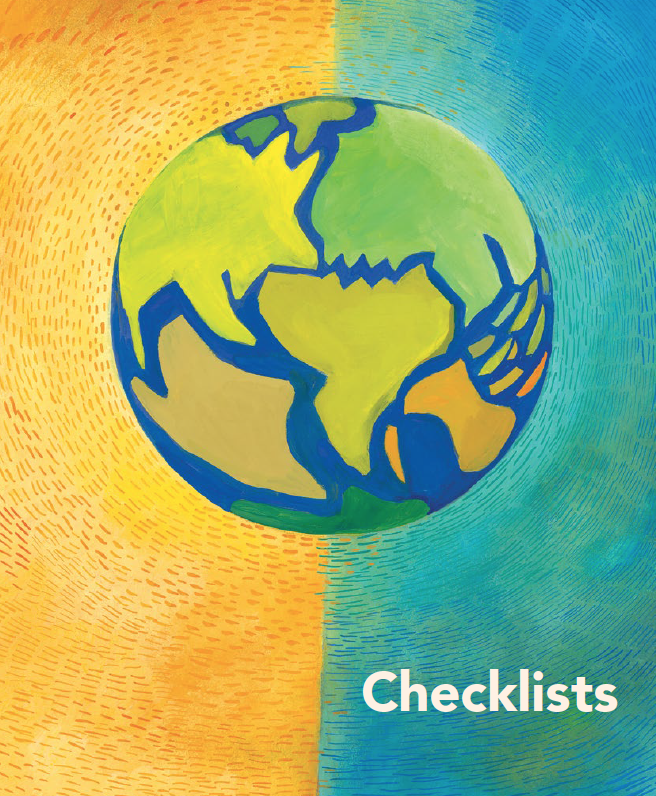The Youngest Human Rights
2020 marked the tenth year since the UN General Assembly adopted the resolution 64/292, which explicitly recognized the
Human Rights to Water and Sanitation (HRWS).
From 28 July and throughout 2020, SWA celebrated this milestone. Partners joined us in communicating around this celebration and shared how the recognition of the Human Rights to Water and Sanitation has a positive impact on the lives of many around the world.
Share. Inform. Empower.

The Human Rights to Water and Sanitation - Past, Present and Future
An interview with Catarina de Albuquerque
The recognition of the Human Rights to Water and Sanitation was the culmination of several years of concentrated advocacy work with civil society, human rights organizations, and governments. Since then, the rights have been recognized in national constitutions, national laws, as well as international and regional legal standards, and as declarations, political statements, among others.
In this video interview, Catarina de Albuquerque, SWA CEO and former UN Rapporteur to the human rights to water and sanitation speaks about the past, present and future of the recognition of these rights.
Videos

What are the Human Rights to Water and Sanitation?
The right to water entitles everyone to sufficient, safe, acceptable, physically accessible and affordable water for personal and domestic uses.
The right to sanitation entitles everyone to have physical and affordable access to sanitation, in all spheres of life, that is safe, hygienic, secure, and socially and culturally acceptable and that provides privacy and ensures dignity.
But what do these mean?
The human right to safe drinking water and sanitation is derived from the right to an adequate standard of living and inextricably related to the right to the highest attainable standard of physical and mental health, as well as the right to life and human dignity.
Human Rights Council
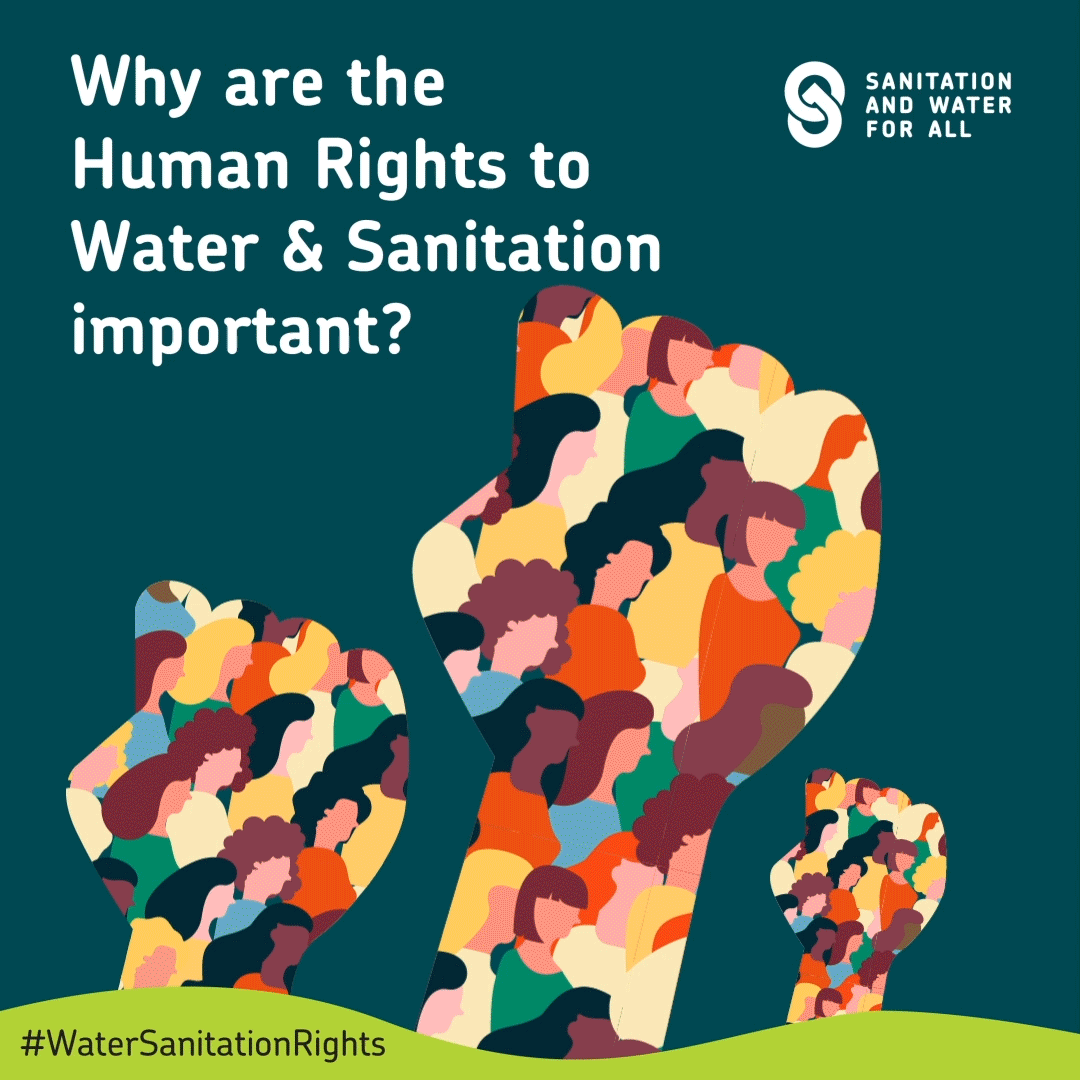
Why are these rights important?
They have positive knock-on effects on other human rights, empower women, girls, marginalized and excluded groups and people, have a positive impact on economic growth...and are the right things to do!
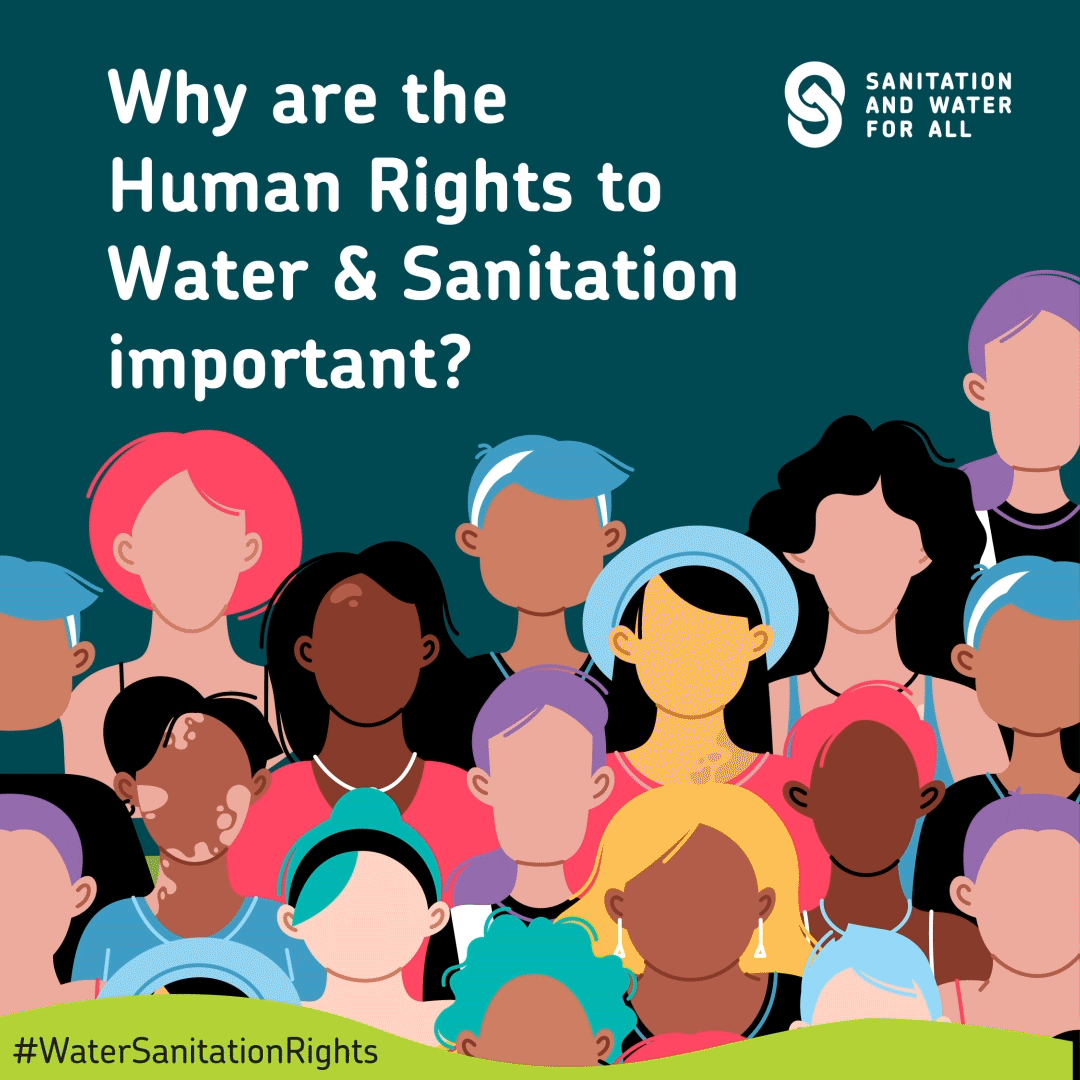

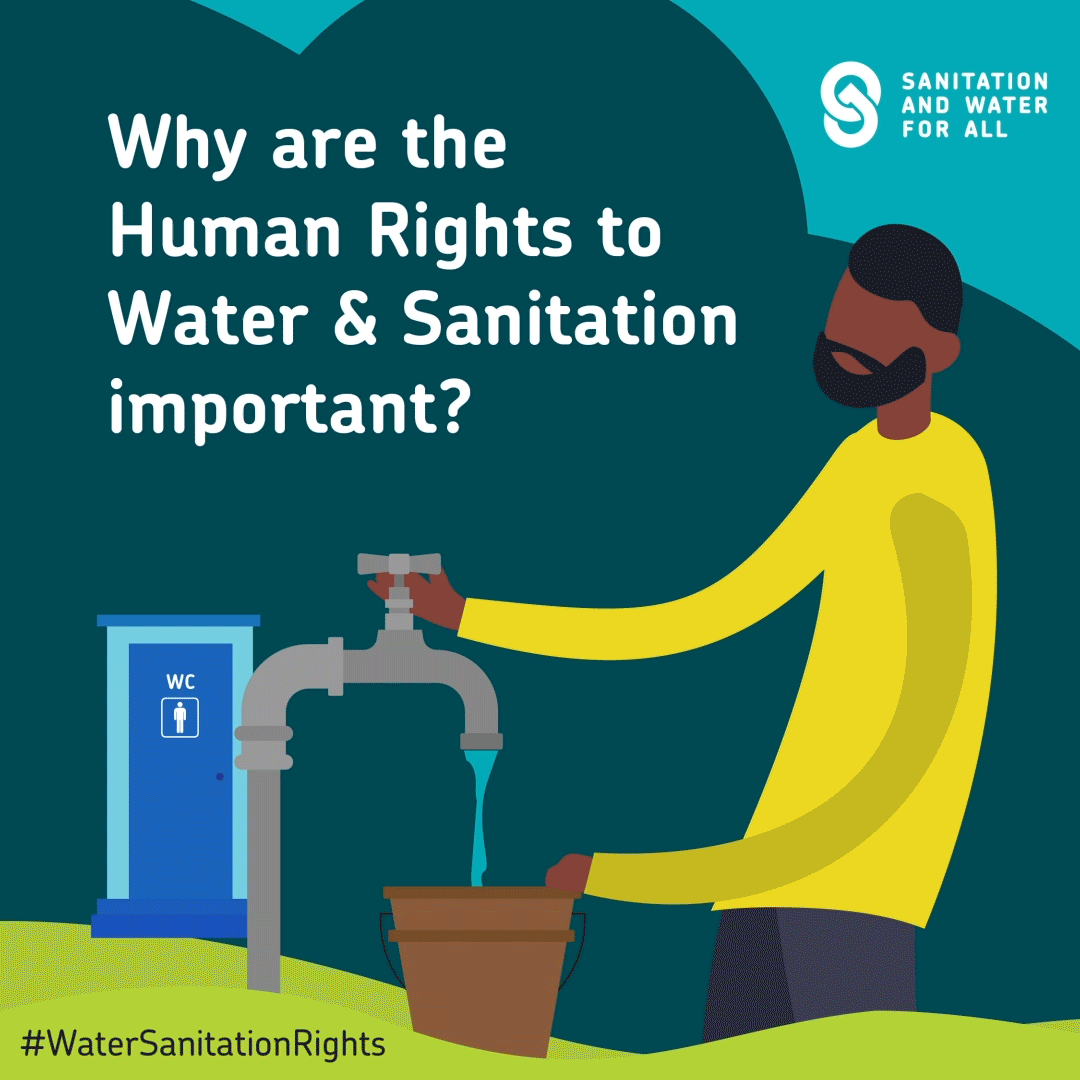

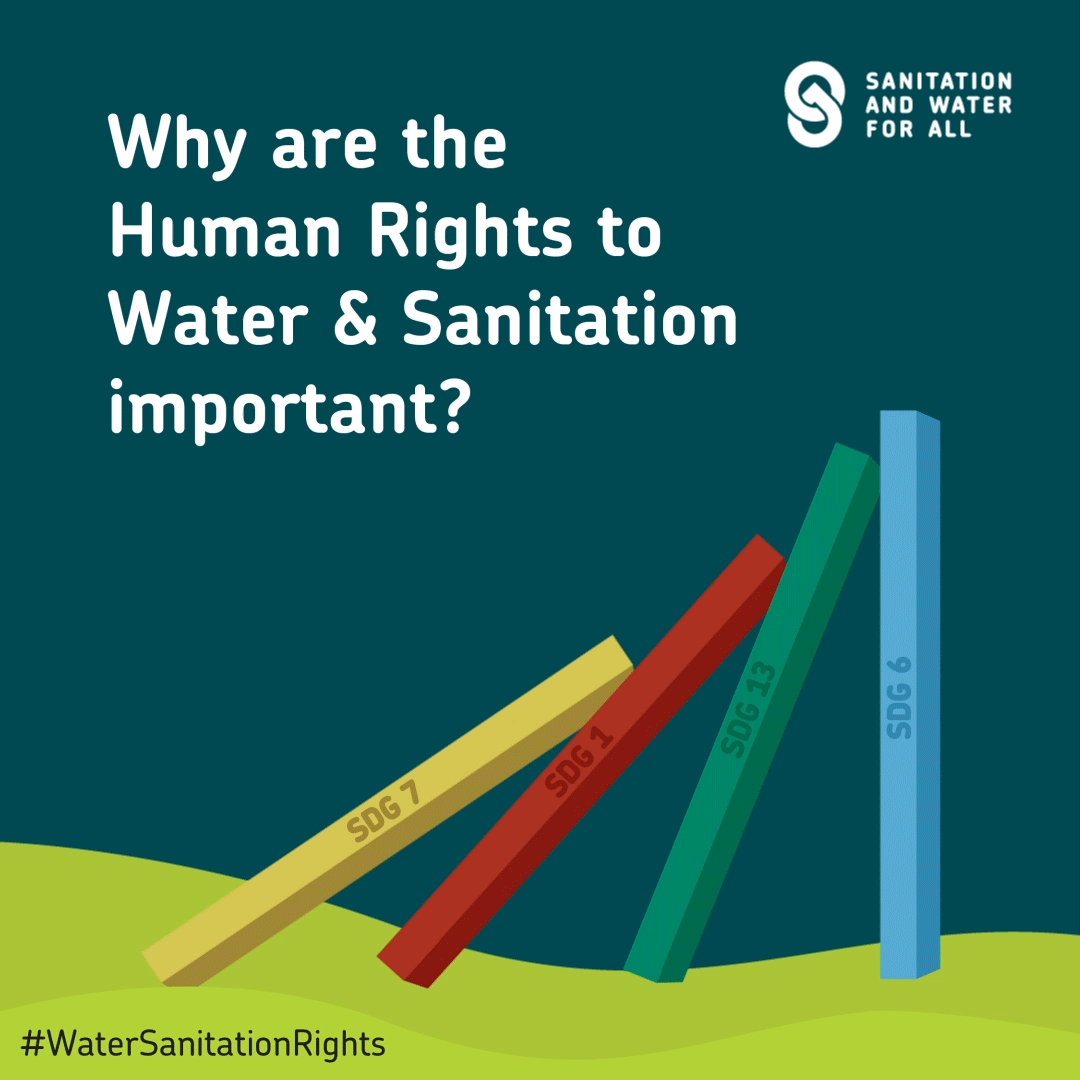
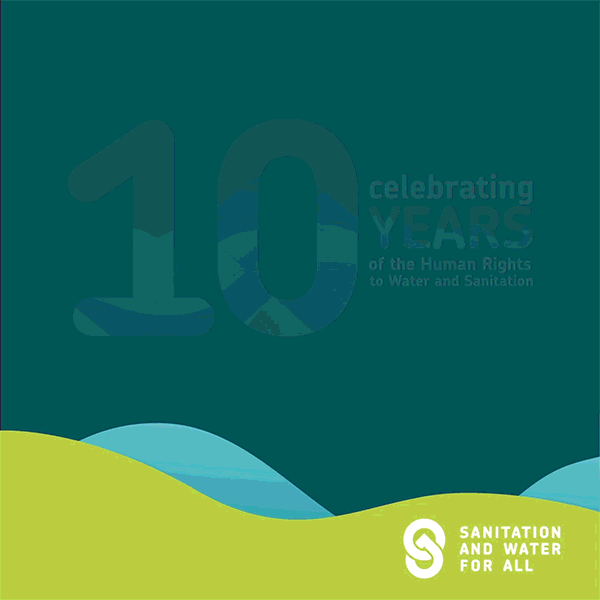
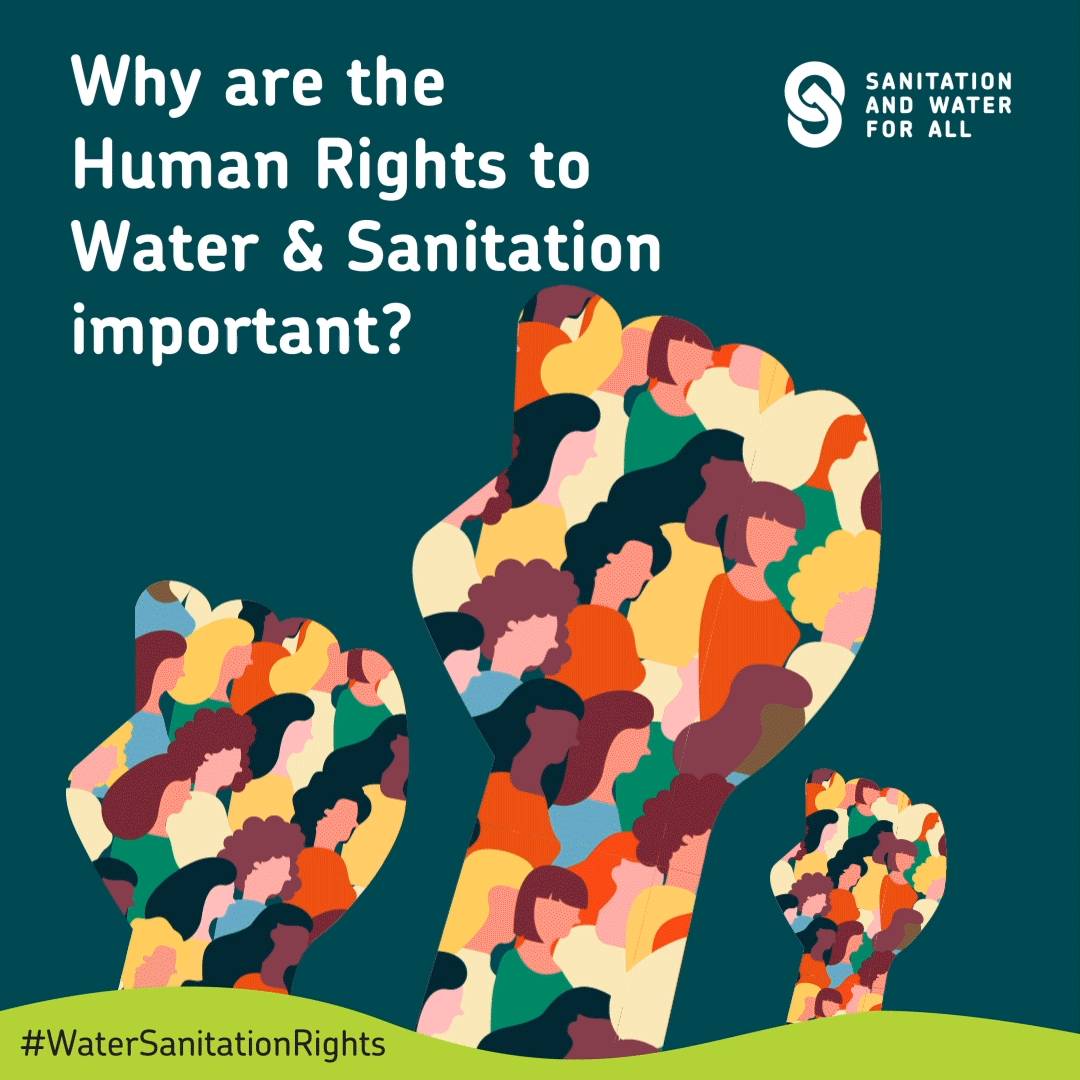

How SWA promotes these rights ?
The human rights to water and sanitation are among SWA’s Guiding Principles, and at the core of all the SWA partnership’s work that promotes human rights principles: equality and non-discrimination, participation, access to information and accountability.
These include promoting transparency in all activities, supporting multi-stakeholder discussions to ensure that all voices are heard and duly considered, and implementing policies that progressively eliminate inequalities, such as through strategies to eliminate open defecation
Human rights inform SWA’s Mutual Accountability Mechanism, a platform for SWA’s partners to make commitments through multi-stakeholder processes, based on national plans and targets to reach the SDGs, particularly SDG6.
Realizing the Human Rights to Water and Sanitation
The Handbook on Realizing the Human Rights to Water and Sanitation was developed to:
- clarify the meaning of the human rights to water and sanitation;
- explain the obligations that arise from these rights;
- provide guidance on implementing the human rights to water and sanitation;
- share some examples of good practice and show how these rights are being implemented;
- explore how States can be held to account for delivering on their obligations;
- provide its users with checklists, so they can assess how far they are complying with the human rights to water and sanitation.
The target audiences for this Handbook are governments at all levels, donors and national regulatory bodies. It provides information that will also be useful to other local, regional and international stakeholders, including civil society, service providers and human rights organisations.

